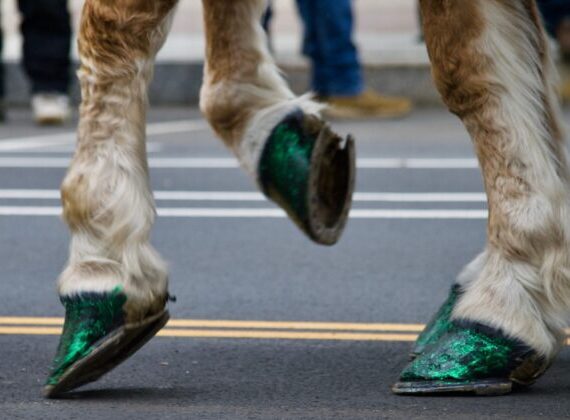 Despite the diligence of can and bottle collectors who wheel their shopping carts (or in some cases, mopeds) around town, there are still many plastic bottles littering sidewalks, streets, and grassy areas. I wonder how difficult it would be to get the city to place a few of these can and bottle recycling bins around Hartford. Placing one or two a few blocks from each high school might help to cut down on the bottles left behind by kids walking to and from school. Sure, some people are going to continue to be lazy and inconsiderate, and throw their trash wherever, but partly, there are just too few options for where empties can be disposed properly. Having this kind of receptacle nearby would also encourage others who might be more appreciative of a clean environment to pick up other people’s trash. Carrying something for a few blocks is far different from carrying it for 45 minutes.
Despite the diligence of can and bottle collectors who wheel their shopping carts (or in some cases, mopeds) around town, there are still many plastic bottles littering sidewalks, streets, and grassy areas. I wonder how difficult it would be to get the city to place a few of these can and bottle recycling bins around Hartford. Placing one or two a few blocks from each high school might help to cut down on the bottles left behind by kids walking to and from school. Sure, some people are going to continue to be lazy and inconsiderate, and throw their trash wherever, but partly, there are just too few options for where empties can be disposed properly. Having this kind of receptacle nearby would also encourage others who might be more appreciative of a clean environment to pick up other people’s trash. Carrying something for a few blocks is far different from carrying it for 45 minutes.
The other item on my wish list is a municipal composting program like the one in Ottawa. Residents would get bins, similar to the large trash and recycling bins we already have, and the compostable materials could be picked up weekly or biweekly. Rather than waiting around for some special leaf collection, residents can year-round put leaves, grass clippings, and other organic materials into their bins. No need for wasteful one-use paper bags or those noisy vacuum trucks!
The Ottawa program explains how composting helps extend the life of landfills. Their list of compostable items clarifies this, as it makes more sense for these things to be composted rather than dumped in with plastics and other materials that diminish the ability of organic materials to break down:
TOSS IT IN
- All leftover food scraps
- Baking ingredients, herbs, spices
- Bread, bagels
- Candies, gum
- Cereals, grains, oatmeal
- Chips, popcorn
- Coffee grounds, filters
- Cookies, cakes, muffins, pastries
- Crackers
- Dairy products
- Dough
- Eggs and egg shells
- Fruit scraps
- Jams, jellies, marmalades, chutney
- Leftover cooking oils, lard, shortening, fat, butter, margarine
- Meat, fish, shellfish, poultry, pork (bones and scraps)
- Nuts and shells
- Pasta, beans, rice
- Peanut butter
- Pet food
- Pits (olives, cherries, peaches)
- Salad dressing, mayonnaise, vinegar, sauces, marinades, dips, syrup, gravy
- Seeds
- Syrup
- Tea and tea bags
- Vegetable scraps
Yard waste
- Branches and twigs
- Garden and house plants
- Hedge trimmings
- Leaves and grass
Other items
- Animal bedding (e.g. from bird or hamster cages)
- BBQ, cold fireplace ash
- Butcher’s paper meat wrap
- Cold fireplace ash
- Cotton balls
- Dryer lint
- Fireplace ashes
- Floor sweepings
- Household plants, including soil
- Kitty litter (including urine and fecal material)
- Microwave popcorn bags
- Muffin paper
- Paper cups and plates
- Pet fur and hair, feathers
- Popsicle sticks
- Soiled napkins, paper towels
- Soiled paper, soiled boxboard, and cardboard
- Soiled tissues
- Sugar, potato, flour paper bags
- Toothpicks
- Untreated wood scraps (less than four inches in any dimension)
- Vacuum bag contents and bag
- Woodchips, sawdust
Basically, the only things that are banned from the bins are plastics, including those used in disposable diapers and pads.
Since many people do not have space for their own private compost heaps (only 25% homeownership) or the knowledge and energy to maintain them, it makes sense that residents have more sustainable ways to dispose of organic matter. We do not have unlimited space for landfills.
